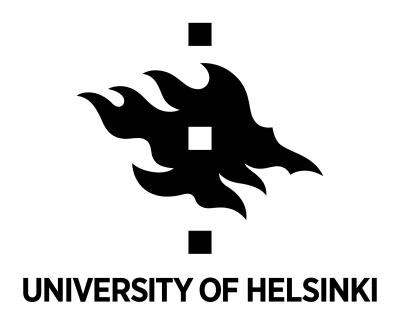
Master in Linguistic Diversity and Digital Humanities
University of Helsinki

Key Information
Campus location
Helsinki, Finland
Languages
English, Finnish, Swedish
Study format
On-Campus
Duration
2 years
Pace
Full time
Tuition fees
EUR 18,000 / per year **
Application deadline
Request info *
Earliest start date
Aug 2024
* from 1.12.2023 to 3.1.2024
** for non-EU/EEA countries
Introduction
Ready to Uncover the Mysteries of Language and Mind?
Do you want to deepen your understanding of language in general or become an expert in linguistic diversity at a local or global scale? Are you interested in learning how humans perceive the world and process information or how to create artificial systems that resemble language, speech and human cognition? Do you want to know how to use digital methods to study aspects of human life such as history and social development?
In the Master's Programme in Linguistic Diversity and Digital Humanities, you may deepen your understanding of the nature and diversity of human language and cognition and the theoretical and digital tools for working with language and speech. You may also focus on digital methods in other fields within humanities or on human cognition and artificial intelligence. You can choose from five study tracks:
- Cognitive Science
- Digital Humanities
- General Linguistics
- Language Technology
- Phonetics
Studying
The Master's Programme in Linguistic Diversity and Digital Humanities (LingDig) is an interdisciplinary programme that combines five fields of study that interact on all levels: cognitive science, digital humanities, general linguistics, language technology, and phonetics.
During your studies, you get an understanding of the nature and diversity of human language and the theoretical and digital tools for working with language and speech. You may also focus on digital methods in other fields within humanities or on human cognition and artificial intelligence. Take a look at what our students say!
Your journey will begin with an introductory course common to all students that bring together the perspectives of all five study tracks, and along the way, taking courses from different tracks is made easy. Your teachers are leading scientists in their field, dividing their time between research and teaching. Courses are heavily integrated with current research topics in your field.
The integration of these five disciplines into one programme is unique - no similar programme exists anywhere else.
Students and student life
Student life and especially the student organisation culture is exceptionally rich and diverse in Finland. Also at the University of Helsinki, the student community is very active. More than 250 student organisations operate within the Student Union of the University of Helsinki (HYY), ranging from faculty and subject organisations to political and societal organisations, and from choirs and orchestras to sports and game clubs. Their activities include anniversary celebrations, academic dinner parties, cultural events, get-togethers and excursions.
As a student and member of the Student Union (HYY), you are entitled to many benefits and services. For example, affordable student housing, basic healthcare services, sports facilities and student-priced meals. You also get numerous discounts, for example on public transport fees across the country.
Admissions
Curriculum
The scope of the Master of Arts degree is 120 credits (ECTS), to be completed in two years of full-time studies. The language of instruction in the LingDig programme is English and it contains the following studies:
- Studies common to all students in the programme (30 credits); this includes a 10-credit introductory course and 20 credits chosen from a common list of courses.
- Advanced studies in your study track (30 credits)
- Elective studies (30 credits)
- MA thesis (30 credits)
As a student in the programme you choose amongst five study tracks: (1) Cognitive Science, (2) Digital Humanities, (3) General Linguistics, (4) Language Technology and (5) Phonetics.
Your elective studies may include modules offered either by the other study tracks within this Master's programme or by other programmes within the University of Helsinki. Examples of modules offered by other programmes include Indigenous studies and computer science. Courses offered by other universities can also be included here.
The studies in your own study track, as well as the other studies, can include study abroad (e.g. student exchange) and work practice or other working life oriented study units. Working life and career development perspectives are integrated into many of the courses.
Courses and teaching
At the beginning of your Master’s studies, you will prepare your first personal study plan (PSP), with support from the staff of the Master's programme. You will also receive guidance from the Faculty.
The courses offer you in-depth training in your chosen study track: (1) General Linguistics, (2) Phonetics, (3) Language Technology, (4) Cognitive Science and (5) Digital Humanities. These five study tracks interact at all levels, starting with an introductory course common to all students, bringing together the perspectives of all five study tracks. Taking courses across study tracks is made easy.
In the context of humanities, the programme has the closest relationship to natural sciences, and many subfields of the programme involve methods directly linked to laboratory sciences, including digital technology and neurosciences. The teaching in the programme includes lectures and seminars, practical exercise sessions, reading circles, fieldwork excursions, as well as work practice (internship). The broad spectrum of teaching methods guarantees optimal support for your learning processes.
Master's thesis
Your studies culminate in writing your Master’s thesis, an independent scientific study with the scope of 30 credits. You will be guided through the writing process in a thesis seminar during your second year of studies.
The aim of the Master’s thesis is to develop your basic skills for conducting research. The most important of them include the ability to seek information independently, analyse and assess existing information critically, and produce and apply information independently. In addition, writing your Master’s thesis develops your project management skills and your mastery of an extensive body of knowledge. Upon completing your Master’s thesis, you will:
- Be ready to work in a systematic way and able to understand large conceptual wholes
- Have the ability to define and discuss your chosen research problem
- Have mastered the theories and research methods required in your work
- Have demonstrated familiarity with your thesis topic and the literature in the field
- Be able to analyse material and communicate your results scientifically
As a rule, you will write your thesis in English, though students with Finnish or Swedish as their administrative language can write their thesis in these languages.
Doctoral education
After completing the Master of Arts degree, you are eligible to apply to study for the Doctor of Philosophy degree, a postgraduate research degree. The LingDig MA programme gives you a strong and competitive background for pursuing doctoral studies within the focus areas of the five study tracks.
Within the University of Helsinki, for those working on language(s), the relevant programme is the Doctoral Programme in Language Studies. Students graduating from Cognitive Science and Digital Humanities may choose other programmes from the Doctoral School in Humanities and Social Sciences.
The Faculty of Arts at the University of Helsinki is Finland’s leading centre for research in the humanities. The Faculty has a strong research orientation, and its research represents the top level in many fields both in Europe and globally.
International scope
The LingDig programme has a high international profile. Its international character shows in many ways, for example, the teachers are internationally widely connected, the programme functions in English accepting students from a variety of linguistic and cultural backgrounds around the world, the opportunities for international exchange are encouraged and much more.
Gallery
Program Outcome
Why Linguistic Diversity and Digital Humanities?
During your studies, you will:
- gain an in-depth understanding of the basic structure of language, its subsystems (phonology, morphology, syntax, semantics, pragmatics) and their interrelationships
- learn the fundamentals of linguistic analysis and language description
- familiarise yourself with linguistic concepts, theories, descriptive models and the associated research methods
- learn how language is related to cognition, speech and interaction as well as to social structures, culture and society
- learn to use various methods and technical tools in order to manage and analyse language data
- gain a good understanding of linguistic variation and diversity: what is common to the world's languages and how they differ, how language changes over time, how languages influence each another, how individuals cope with multilingual situations and how communities speaking endangered languages can be supported.
After completing your studies, you will be able to work independently in various fields that require multidisciplinary expertise in linguistic sciences. You will have the theoretical knowledge and skills that are required for postgraduate studies in doctoral programmes in language studies.
Scholarships and Funding
Our scholarship program is for students who are applying to the University of Helsinki. These scholarships are intended for excellent students from outside the EU/EEA, who wish to complete a Master's program at the University of Helsinki. Grants can be applied while applying to the University of Helsinki’s Master’s programs.
Program Tuition Fee
Ideal Students
The Master's Programme in Linguistic Diversity and Digital Humanities is for you if you want to:
- deepen your understanding of language in general, or
- become an expert in linguistic diversity at a local or global scale, or
- learn how humans perceive the world and process information, or
- learn how to create artificial systems that resemble language, speech and human cognition, or
- know how to use digital methods to study aspects of human life such as history and social development.
Career Opportunities
After completing your studies in the Master's Programme in Linguistic Diversity and Digital Humanities (LingDig), you will be able to work independently in various fields that require multidisciplinary expertise in linguistic sciences. You will also have the theoretical knowledge and skills that are required for postgraduate studies in doctoral programmes in language studies.